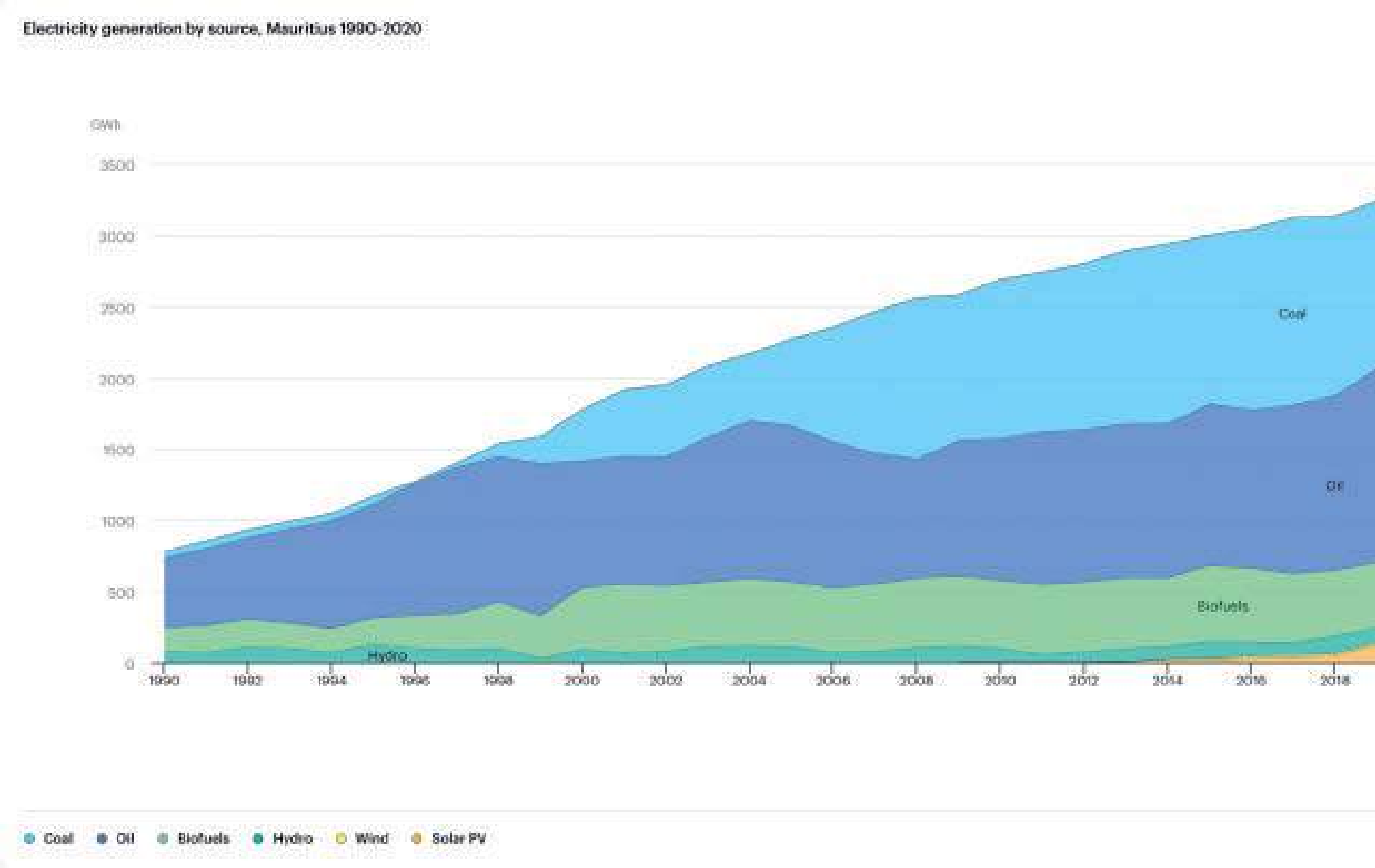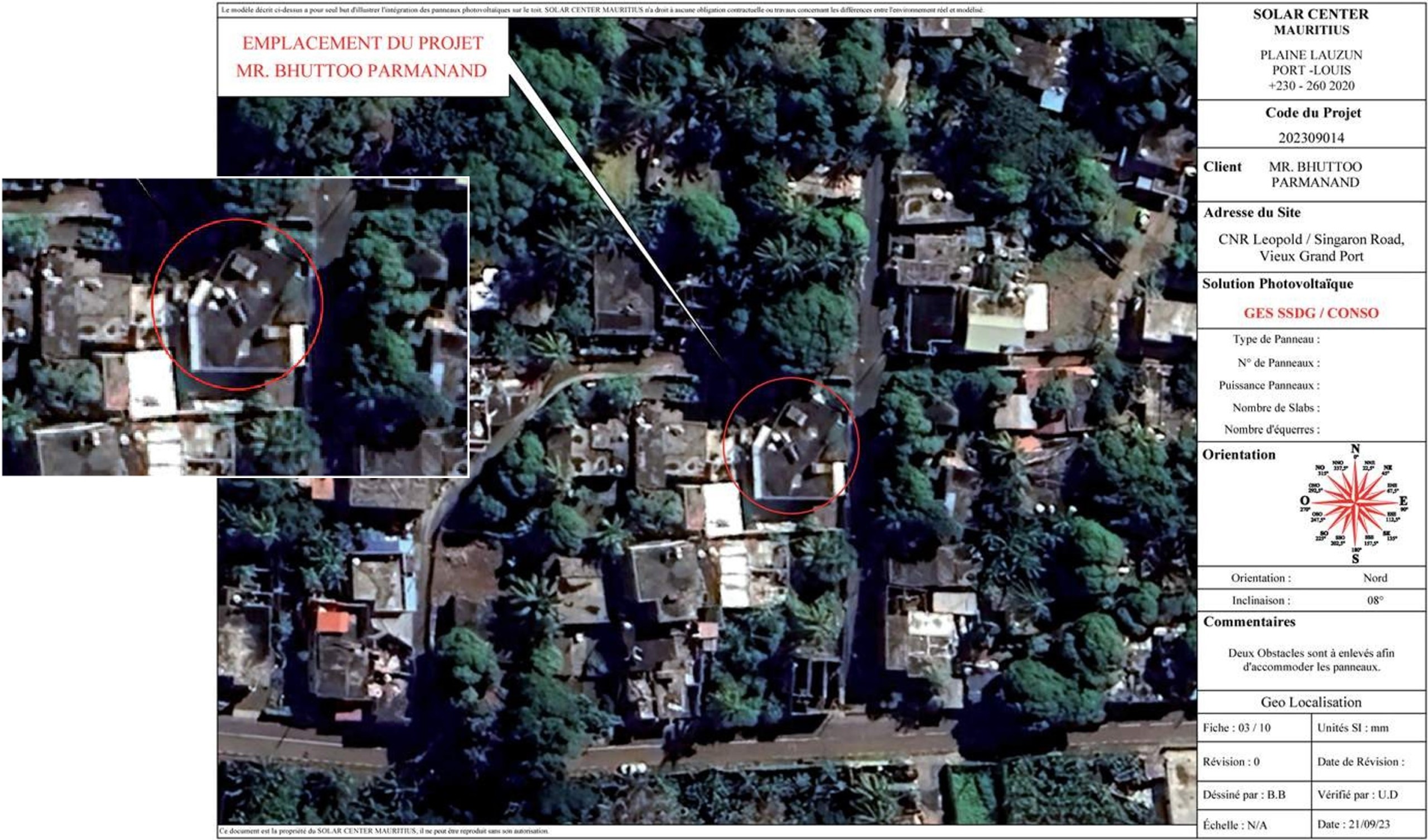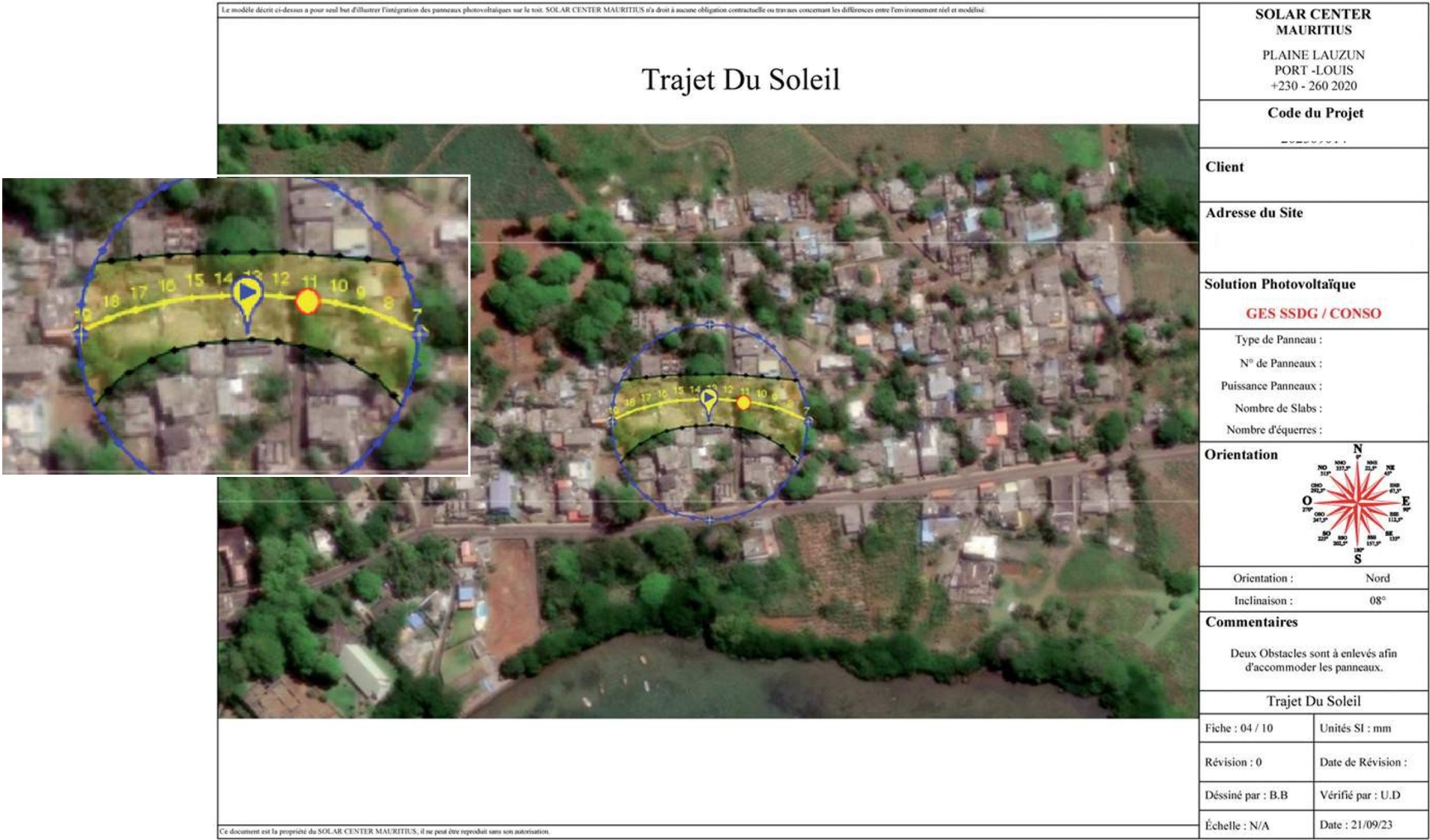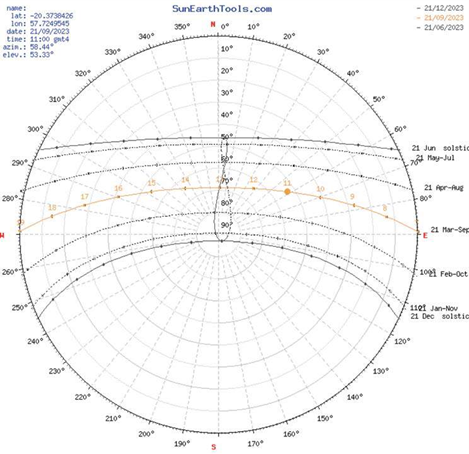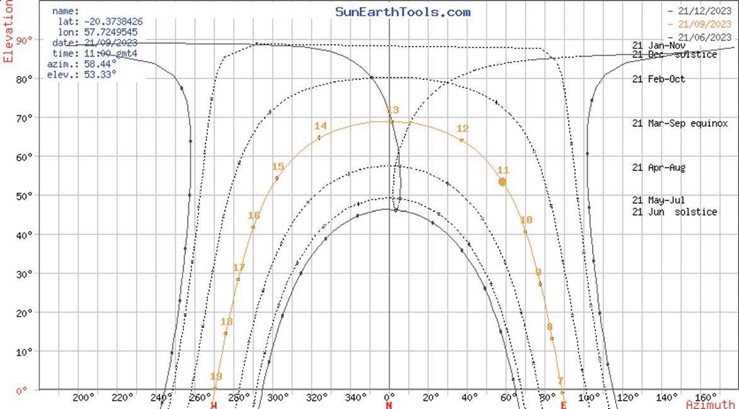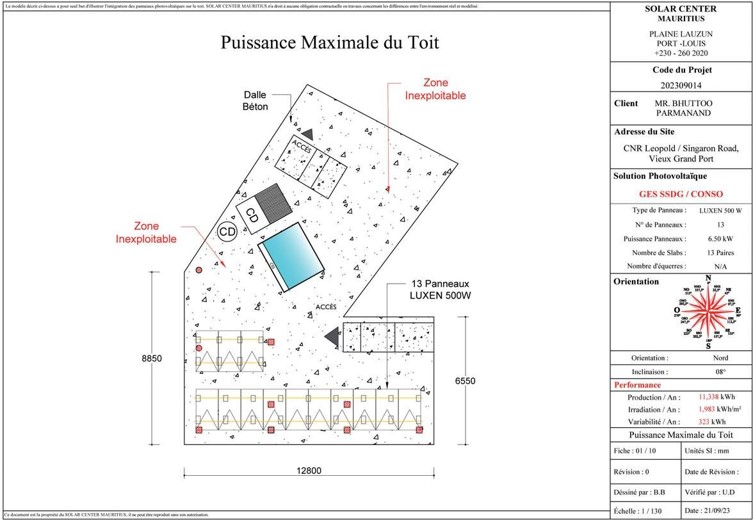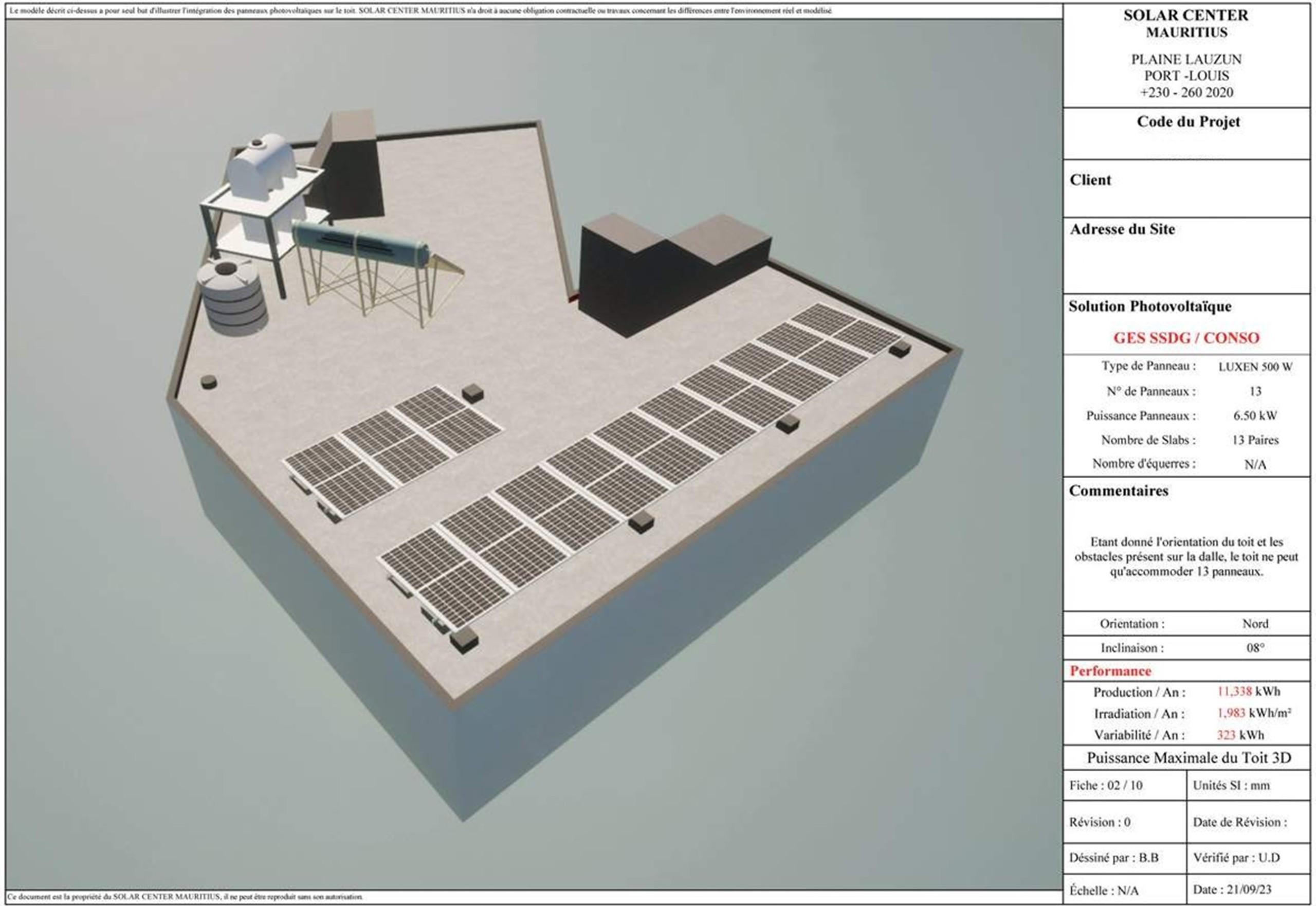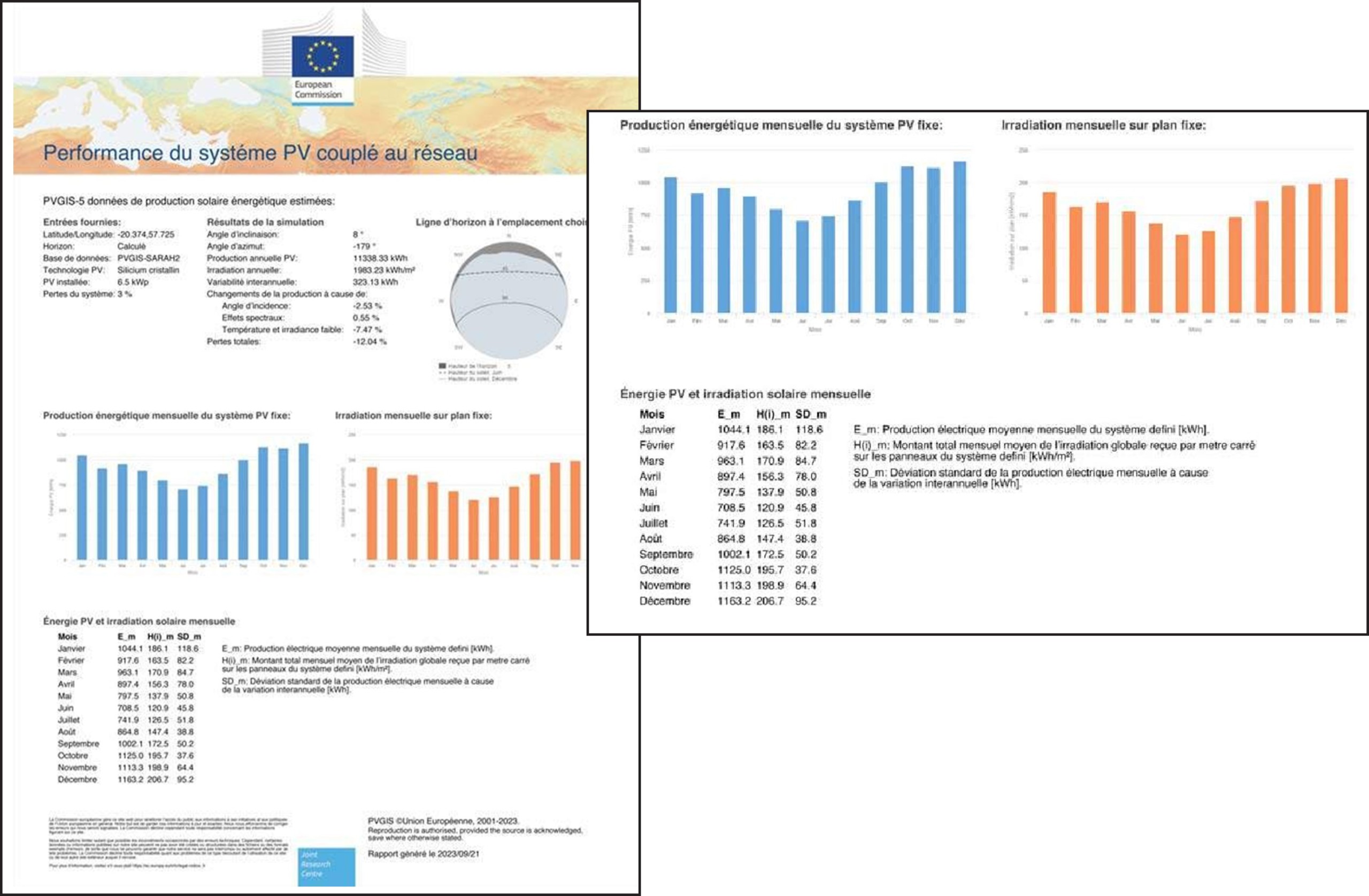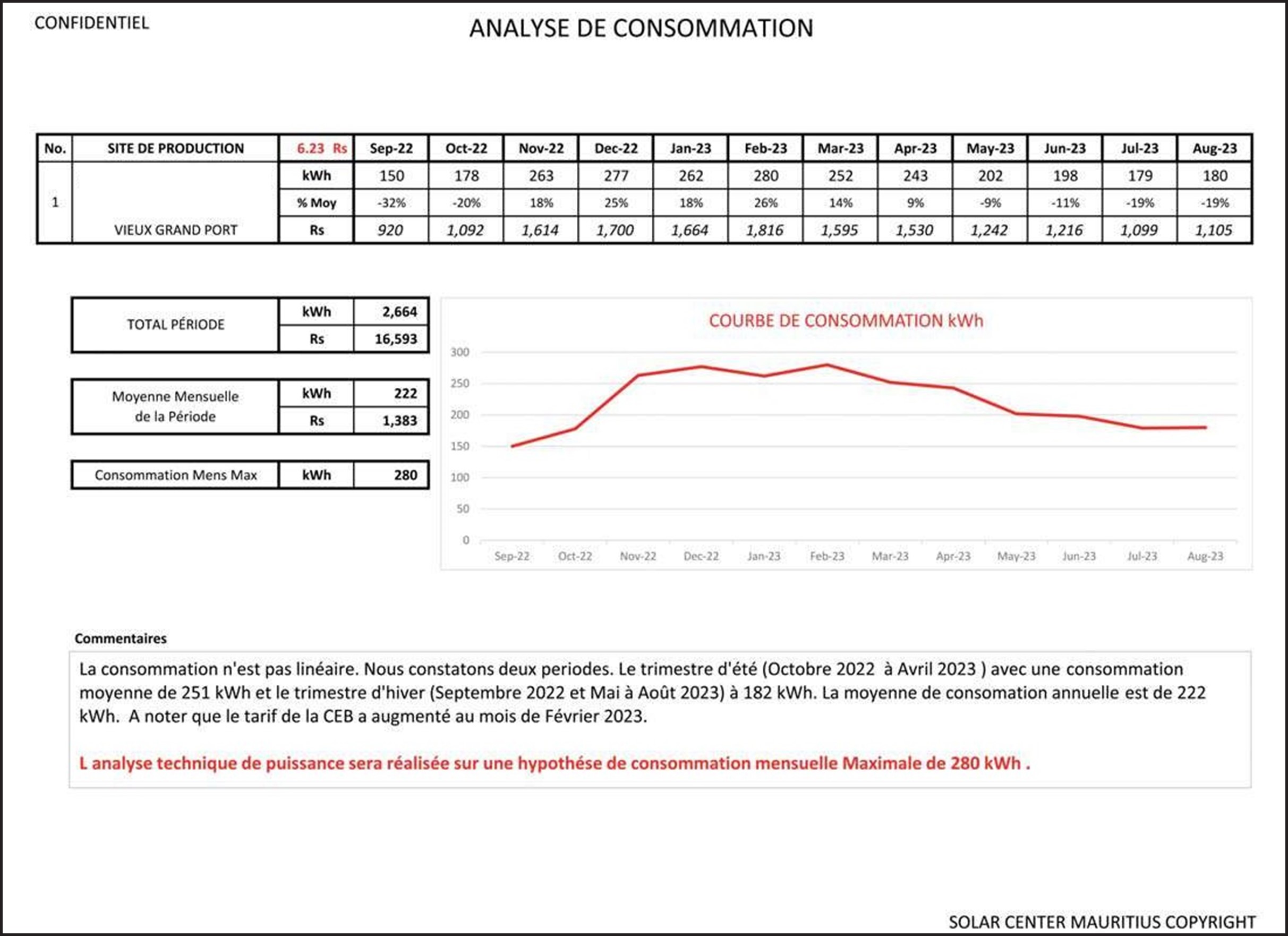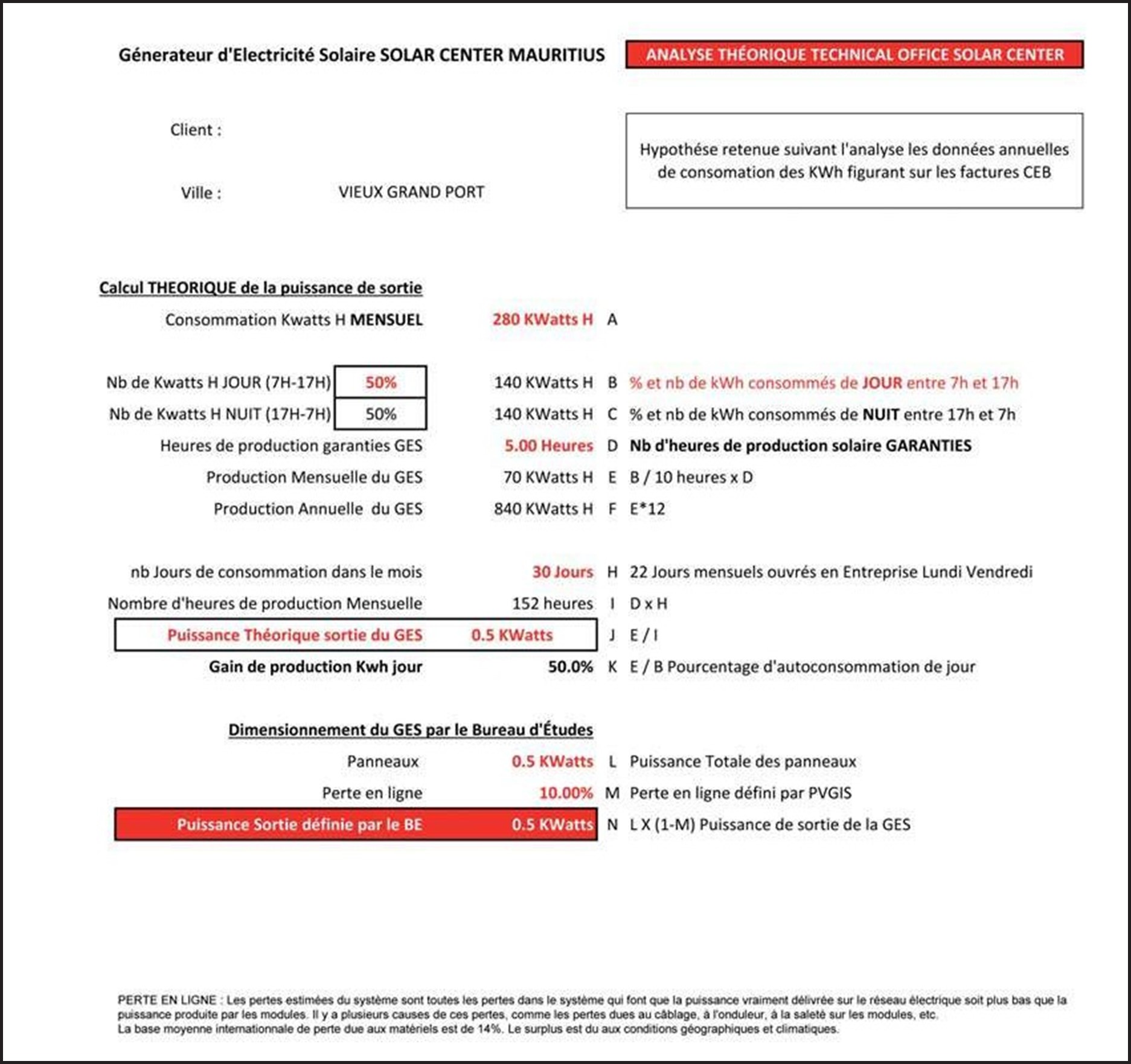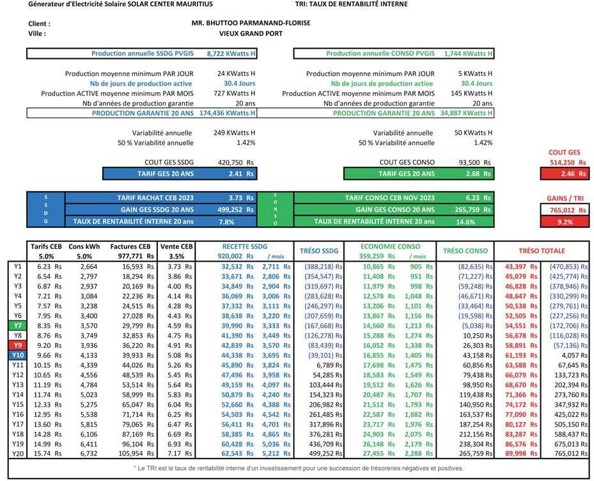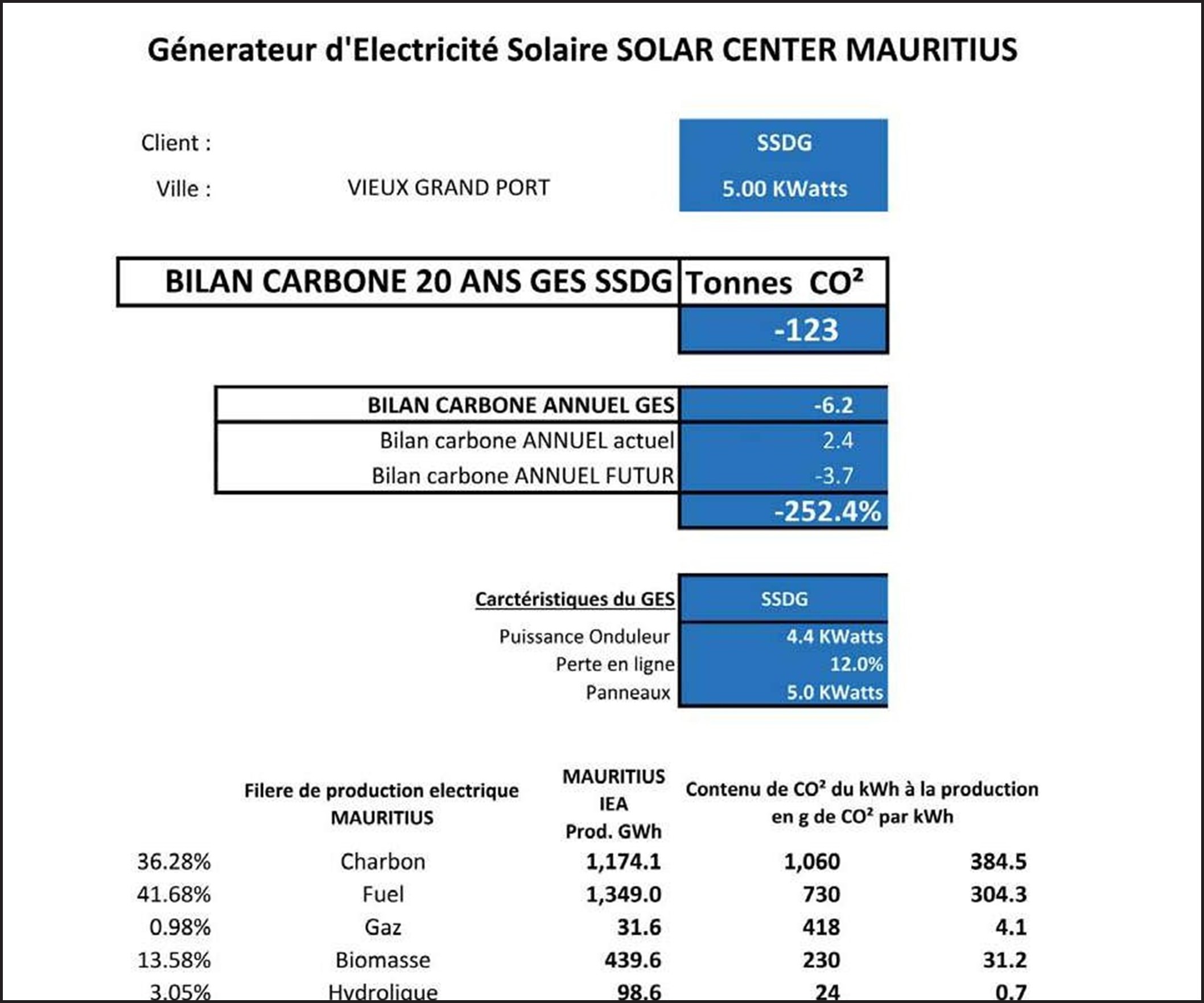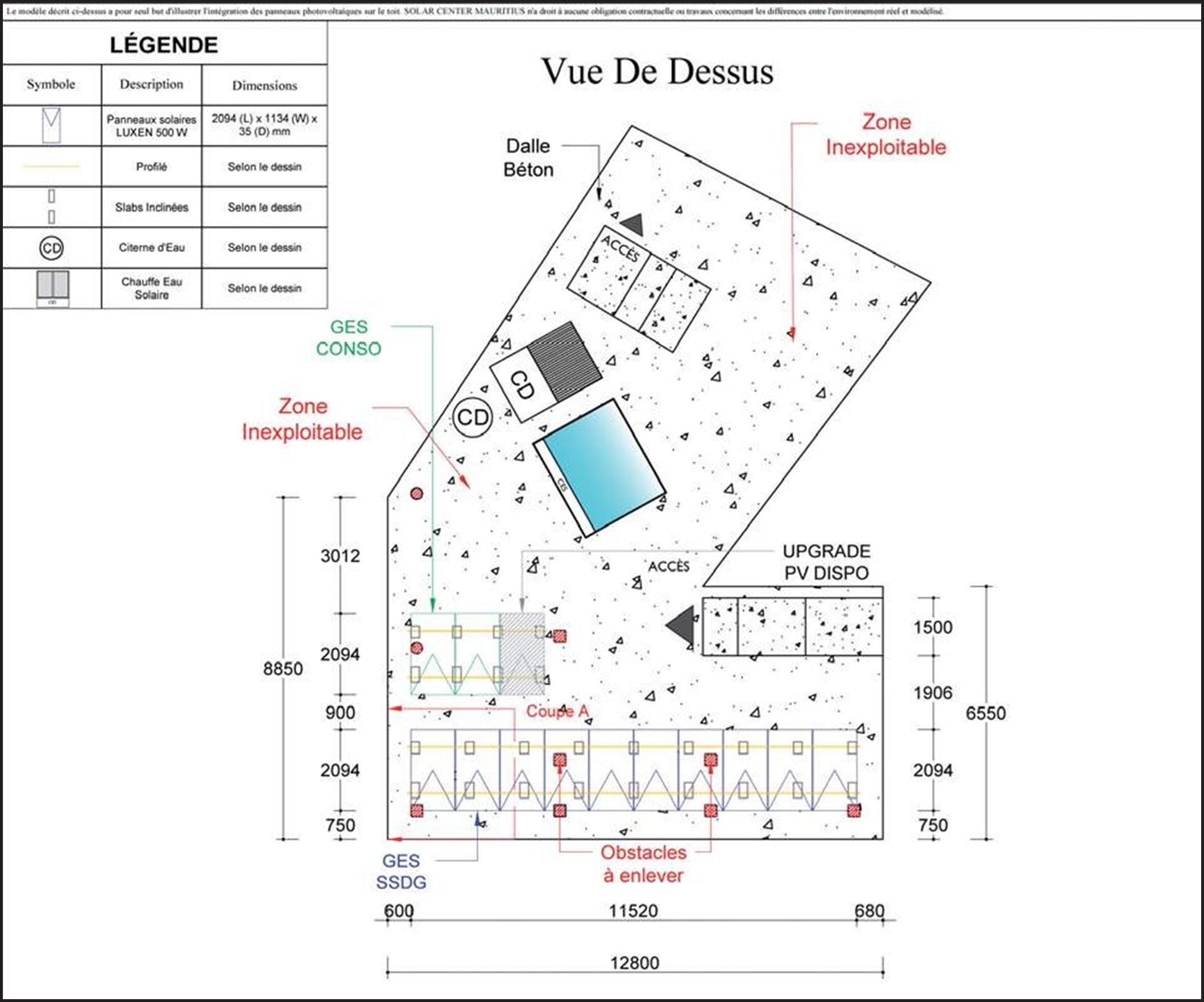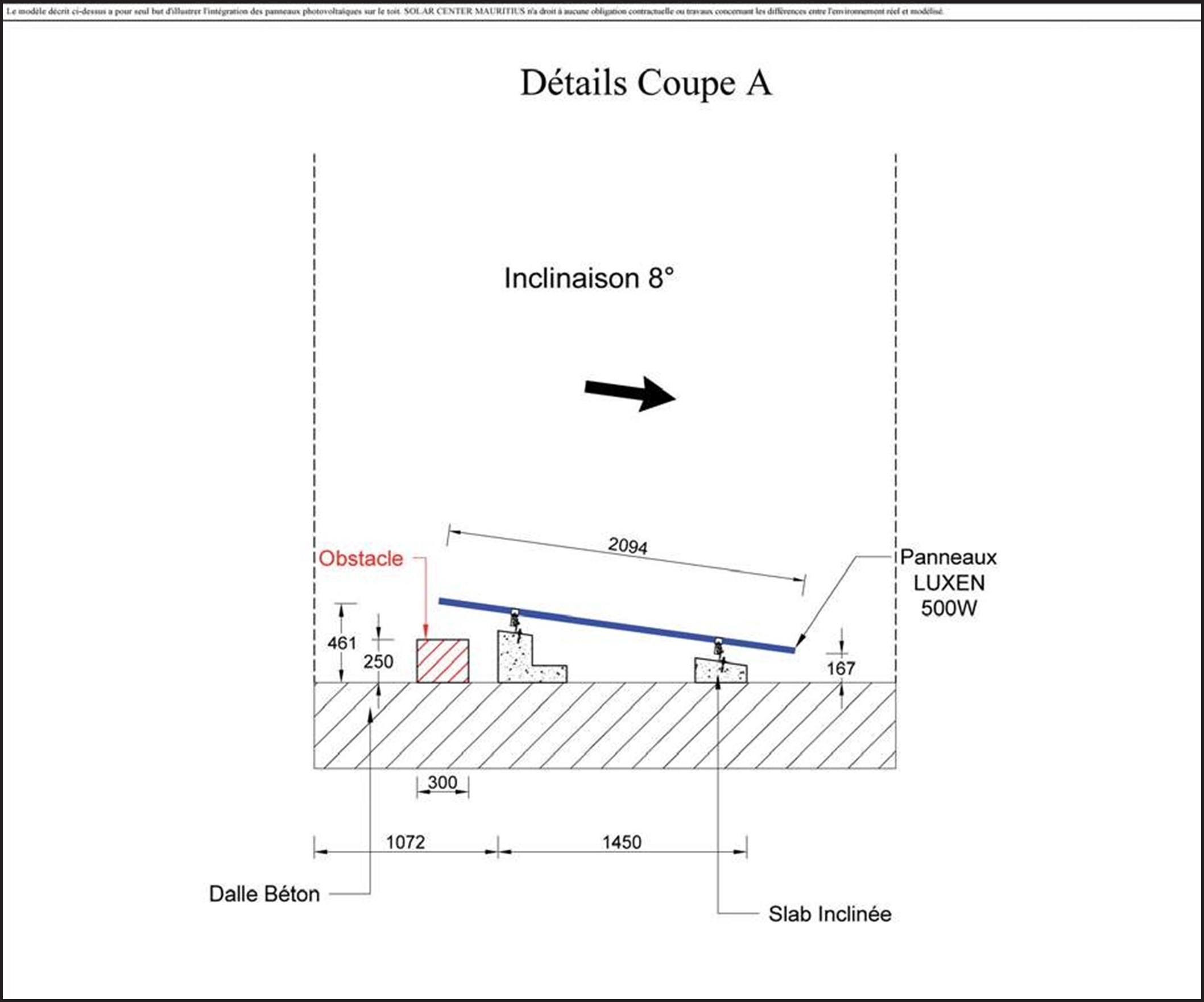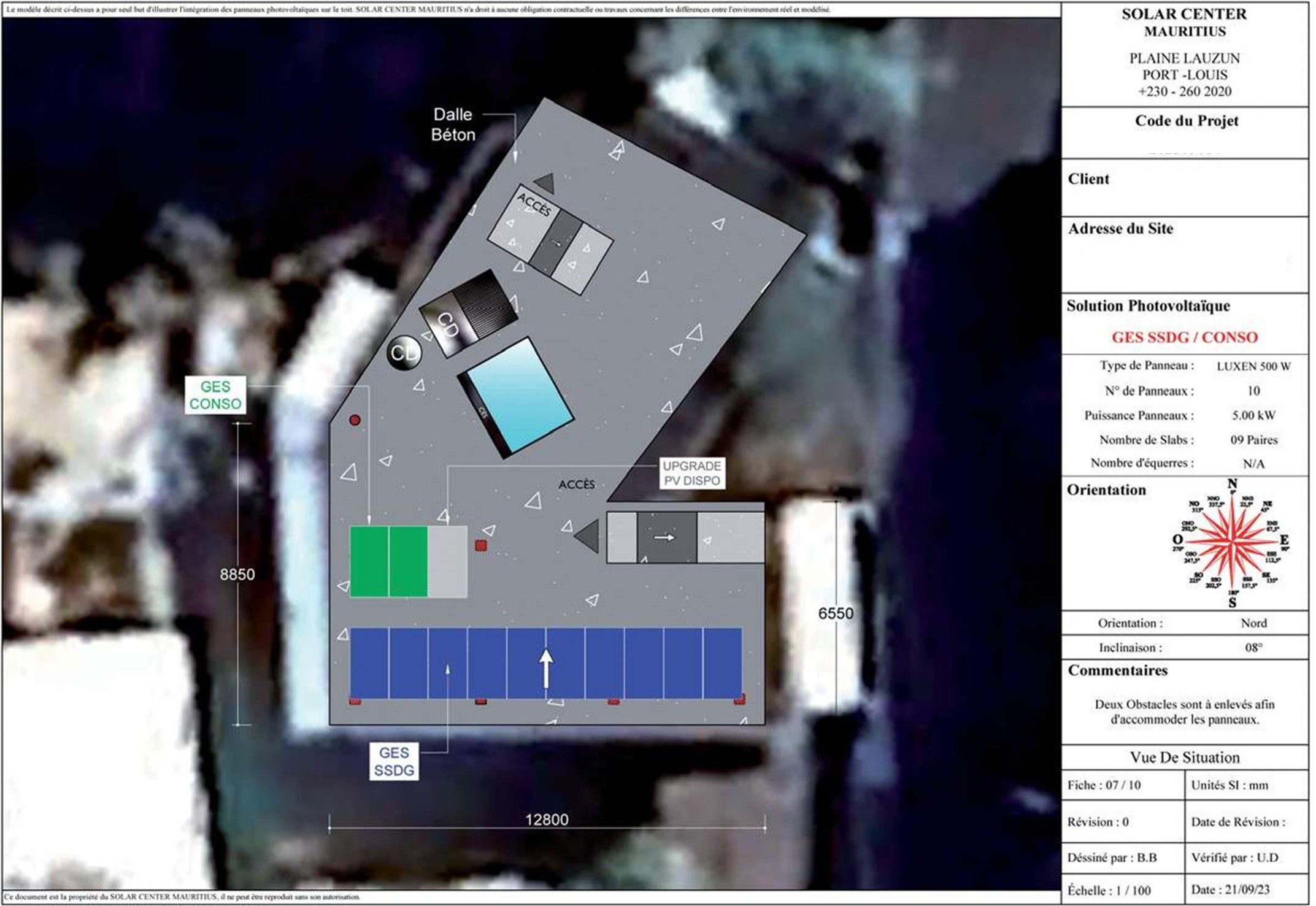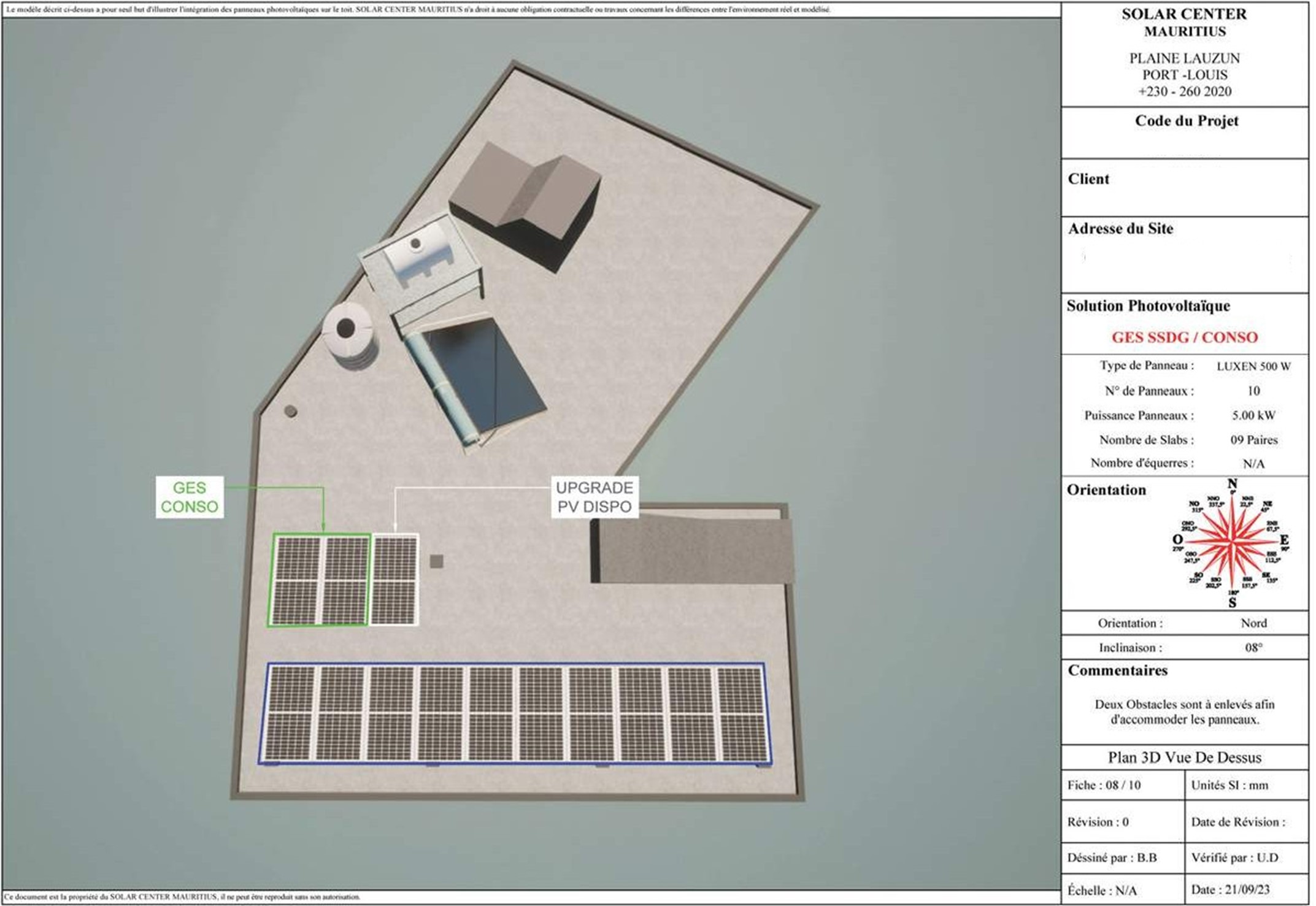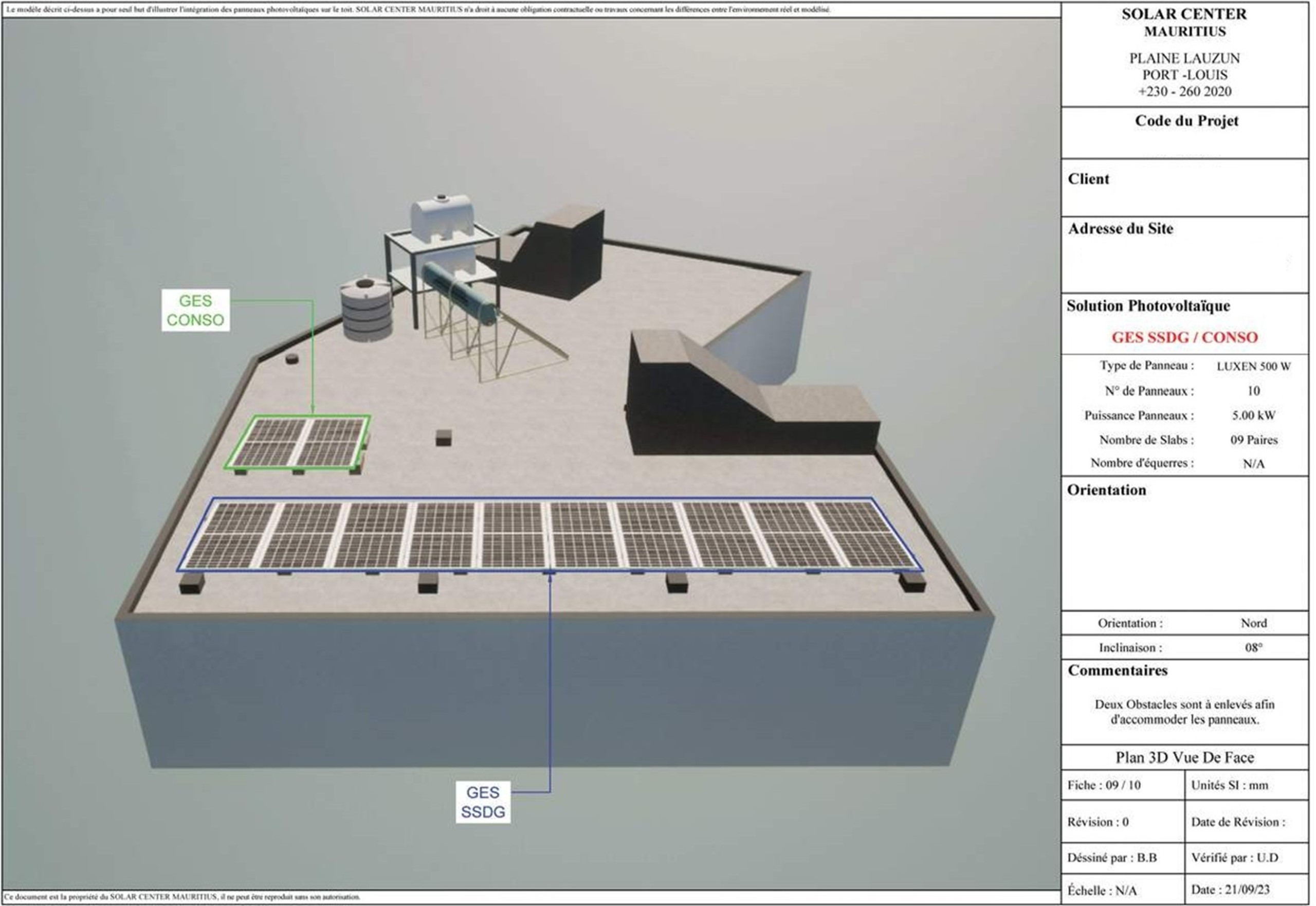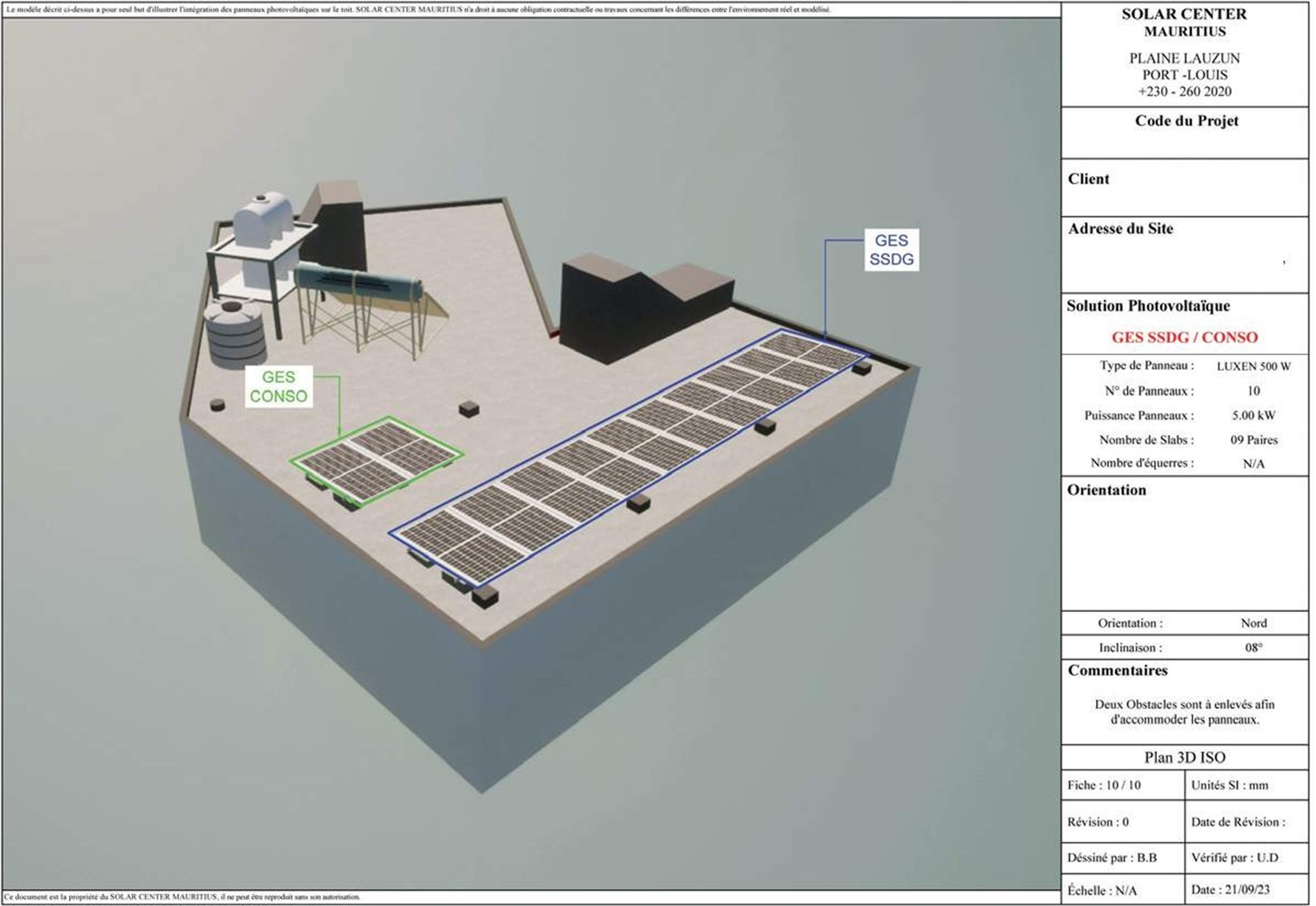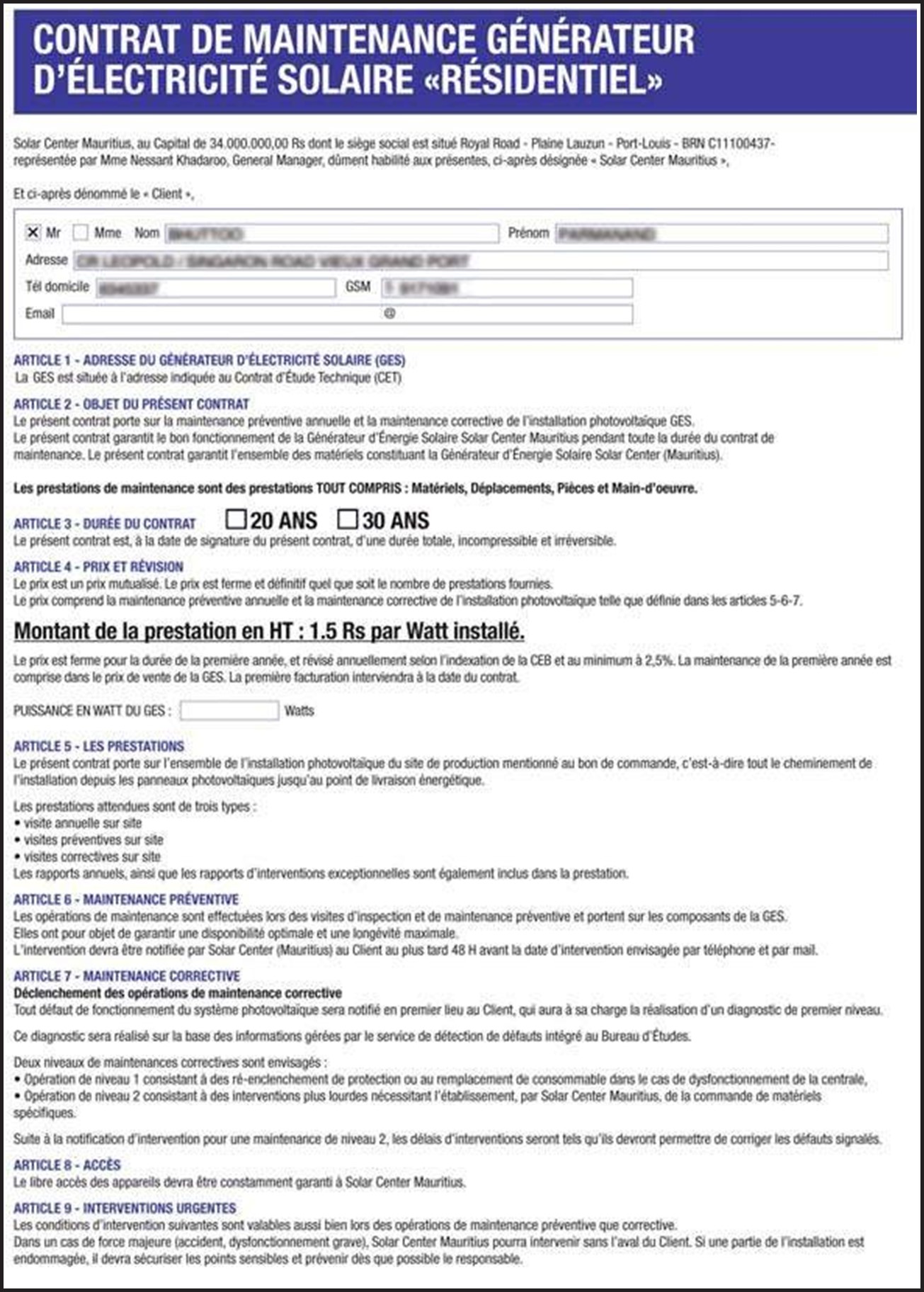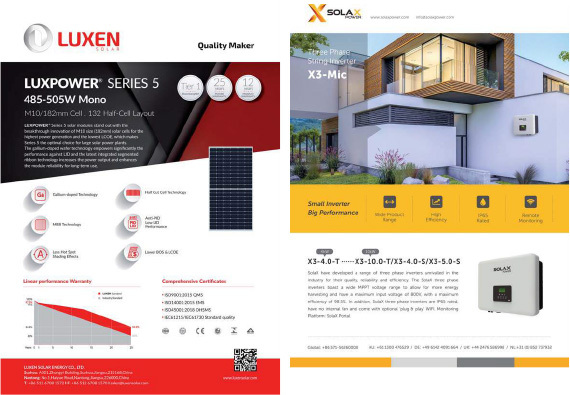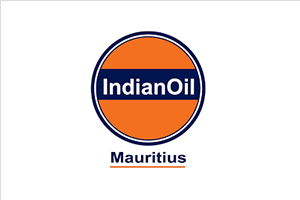A word from the General Manager

The aim of the MAURITIUS SOLAR CENTER is to enable everyone, whatever the size of their roof, to be an independent producer of radiant energy from the sun and to be energy self-sufficient in the medium term.
The world is going through a major climate and ecological crisis. COVID 19 has worsened the global economic situation. Mauritius has been hard hit by this health crisis.
Black Listed, Black Sea, Black Crisis, … Maurice must change colour to survive, Maurice must become 100% GREEN.
CHANGE COLOUR, BECOME GREEN !
BECOME ECOSOLAR-FRIENDLY !
Richard Biron
General Manager
WHO WE ARE ?
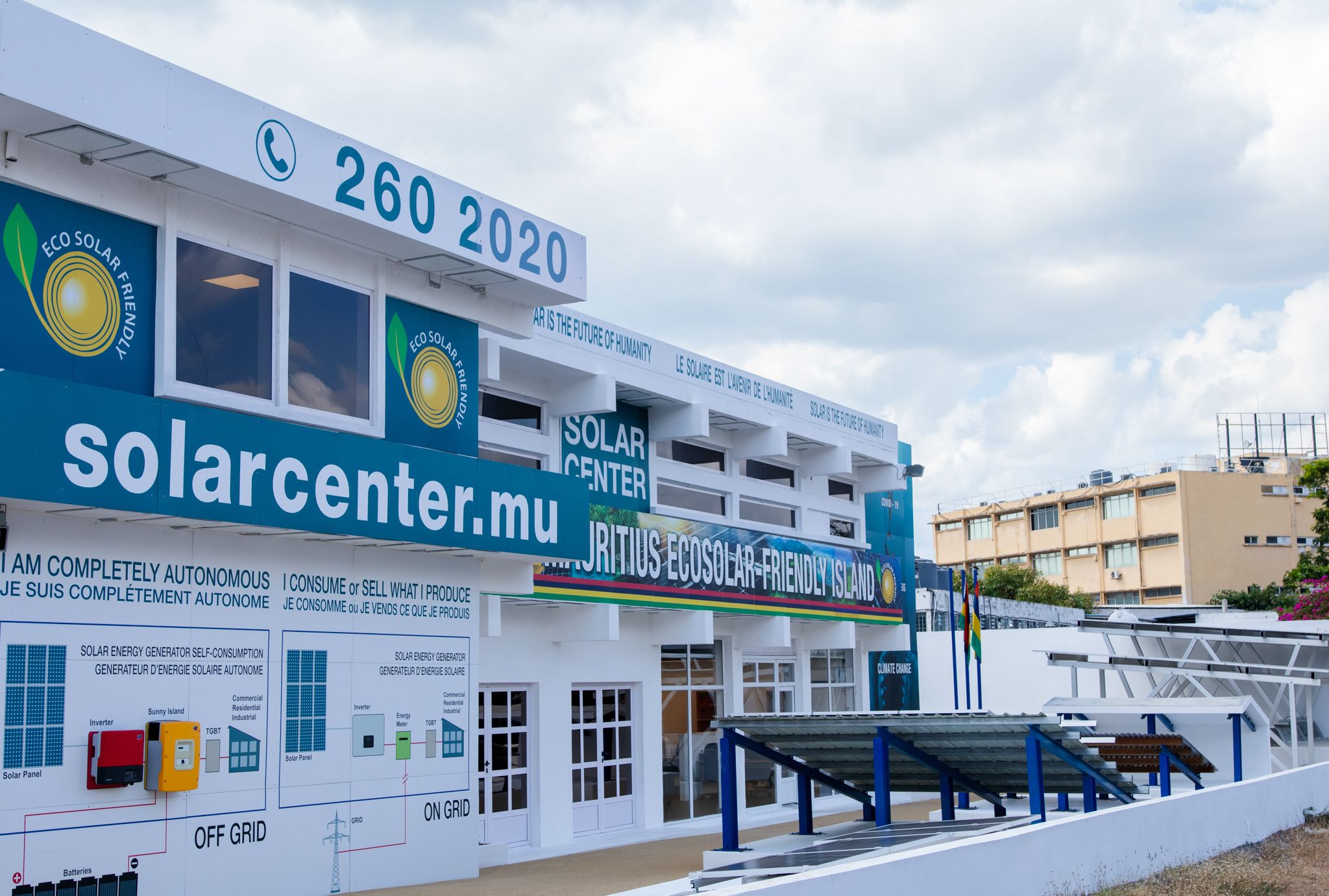
SOLAR CENTER MAURITIUS is a solid company
Over 150 million rupees invested in 15 years.
SOLAR CENTER MAURITIUS is No. 1 in Mauritius for photovoltaics in the residential and commercial sectors.
SOLAR CENTER MAURITIUS has completed more than 5,000 installations in the Indian Ocean.
SOLAR CENTER MAURITIUS is present in Reunion and Madagascar.
We have representative offices in the Comoros and the Seychelles.
We have created a SOLAR CENTER in Plaine Lauzun, behind NTA with a solar showroom of 1,000 m² and 1,400 m² office space. (Design Office, Laboratory, Engineering, Maintenance, Repair.)
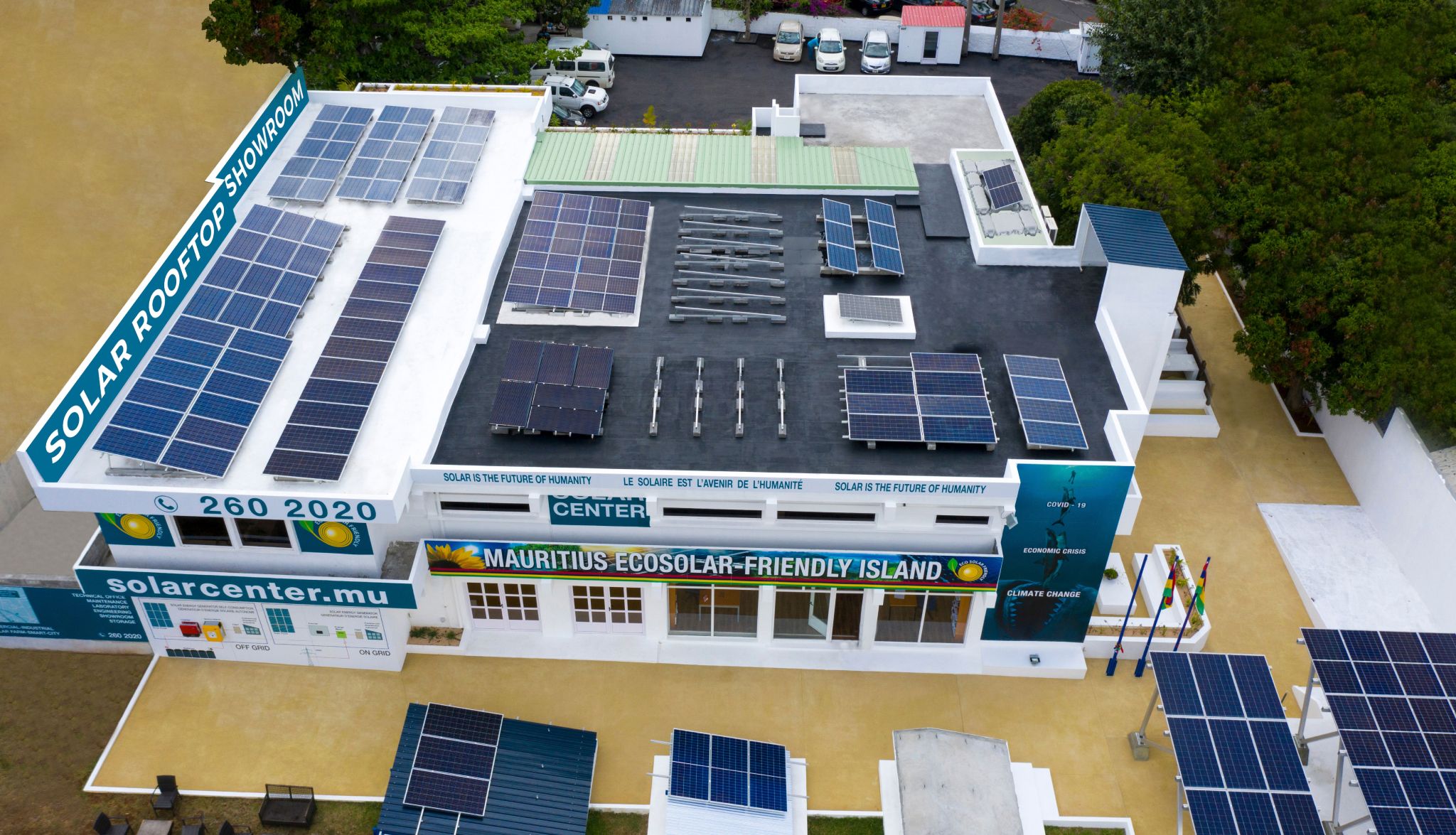
The SOLAR CENTER MAURITIUS showroom is unique in the world.
All types of solar panels and mounting systems are on show. Open to the public 6/7.
SOLAR CENTER MAURITIUS is THE ONLY EXPERT Solar Photovoltaic Energy in Mauritius.
We are specialised in rooftop solar installations : homes, offices, commercial buildings, farm buildings, warehouses…
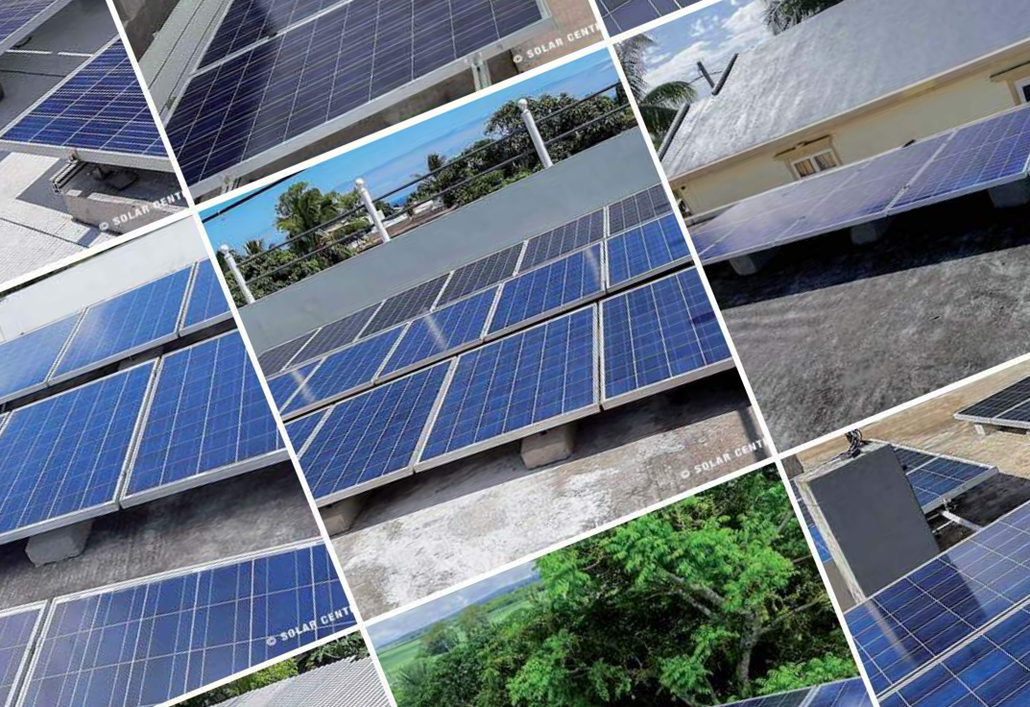
We are recognised and highly valued by a large number of corporate customers of SOLAR CENTER
MAURITIUS
Mauritius Telecom, MCB, Lafarge, Indian Oil,
American Embassy, Total Mauritius, Mauritius
Wildlife Foundation, Rose Hill Transport et several other leading companies in Mauritius.
To conclude the presentation of SOLAR CENTER MAURITIUS.
All our design office engineers and site managers have been trained in France with the QUALI PV distinction.
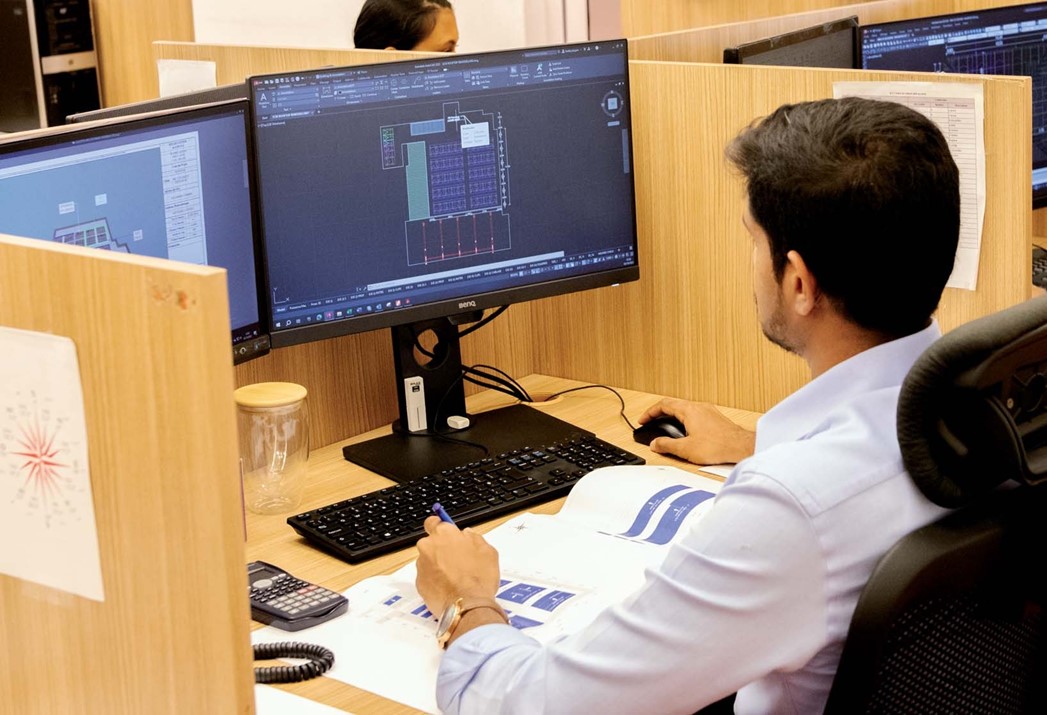
- We have expertise and the know-how.
- We have an excellent professional reputation.
- We are the only serious solar company in Mauritius.
IS SOLAR ENERGY MAURITIUS’ FUTURE? ?
The CEB produces approximately 3,240 MegaWatt hours of electricity per year.
Electricity generated by fuel oil at 41.68%, coal at 36.28%!!
Barely 7.49% Natural Renewable Energy (NRE) by 2020 : 3,05 % hydrolic, 0,47% wind power, 3,97% of solar energy!
We're walking on our heads !!!
Mauritius' carbon footprint is disastrous among most polluting car in the world.
Mauritius emits 2,348,782 tons of CO2 per year.
We are at the end of the global exploitation of fossil fuels.
The sun shines on Mauritius for free 342 days a year.
Arrêtons de polluer notre ile,c’est temps de mettre du solaire sur tous les toits !!

To survive,
Mauritius must become 100% GREEN.
LET’S CHANGE COLOR !!!

In 2035, all the roofs in Mauritius will be equipped with solar panels.
In 2040, all buildings seront self-sufficient in solar energy.
In 2050, all cars will be electric.
HOW DOES SOLAR WORK?

The sun shines all day long from 5/6am to 6/7pm, giving an average of 12 hours of sunshine a day. Concerning electricity production,
the sun is 100% productive between 9am and 10am and 3pm and 4pm in the evening.
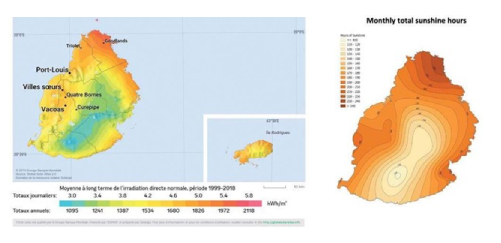
Some solar maps show 2,200 hours of solar irradiation, without taking weather variations into account.
The Design Office of SOLAR CENTER MAURITIUS guarantees all its calculations with an annual average of 5 hours of solar electricity production per day, i.e. 1800 hours per year.
SOLAR POWER ON MAURITIUS IS SIMPLE, WITH 3 POSSIBLE SOLUTIONS
Solution 1 : JI SELL WHAT I PRODUCE
Solution 2 : I CONSUME WHAT I PRODUCE
Solution 3 : I AM COMPLETELY AUTONOMOUS
Solution 1 : I SELL WHAT I PRODUCE
The law is very strict. To sell solar-generated electricity in Mauritius, you must have a CEB permit.
You are not allowed to sell your own electricity.
Depending on your status, the CEB can offer you a permit tailored to your situation.
CEB « SSDG », Individuals limited to 5 KiloWattsthe feed-in tariff is Rs 4.20 per KWh
CEB « MSDG », Companies from 50 KW to 2,000 KWthe feed-in tariff is Rs 4.20 per KWh
CEB « PECR », Public Educational Charitable & Religionthe feed-in tariff is Rs 4.20 per KWh
On average over 20 years, SSDG, MSDG and PECR expect a Return on Investment (ROI) of between 10 and 12 years, and an Internal Rate of Return (IRR) of 6% to 7%.
Optimum solution for INDIVIDUALS
Solution 2 : I CONSUME WHAT I PRODUCE
I consume the electricity produced by my Solar Electricity Generator free of charge between 9am and 10am and 3pm and 4pm in the evening.
From 3/4pm in the evening until 9/10am in the morning, CEB supplies my electricity.
The first law on self-consumption by electricity generators dates back to 1939. The last modification was made in 2005.
The law is also very strict when it comes to self-consumption of the electricity generated by your home.Solar Electricity Generator (GES).
3 obligations to be respected
OBLIGATION AYou can use the electricity produced by your solar generator only for yourself, your employees or your tenants.
For example, you do not have the right to supply electricity to your neighbour, even if he is a member of your family.
OBLIGATION BYou do not have the right to feed surplus electricity production into the CEB electricity grid. Clearly, if you produce more electricity than you consume, the excess is lost. Overproduction of electricity must be blocked by an appropriate electronic system. Only Solar Center Mauritius has mastered this high-level technology.
OBLIGATION CYour electricity production with an electricity generator is limited to 400 KVA (approximately 400 kilowatts).
All the top-of-the-range hotels in Mauritius are equipped with electricity generators (fuel) limited to 400 KVA.
The Solar Center Mauritius Solar Power Generator expects an average Return on Investment (ROI) of between 5 and 6 years over 25 years, and an Internal Rate of Return (IRR) of 15% to 16%..
Optimum solution for COMPANIES
Solution 3 : I AM COMPLETELY AUTONOMOUS
I use up all the electricity in my batteries, day and night.
The day between 9am/10am and 3pm/4pm in the evening, my Solar Electricity Generator recharges the batteries.
I consume for 24 hours what I have stored in solar batteries to suit my autonomy needs
ANY QUESTIONS ABOUT SOLAR ENERGY?
Today, producing and consuming all your own electricity is a DREAM within everyone's reach.
Batteries are essential to solar energy autonomy.
There are several types of battery: the most common are lithium batteries and lead acid batteries (lead acid gel).
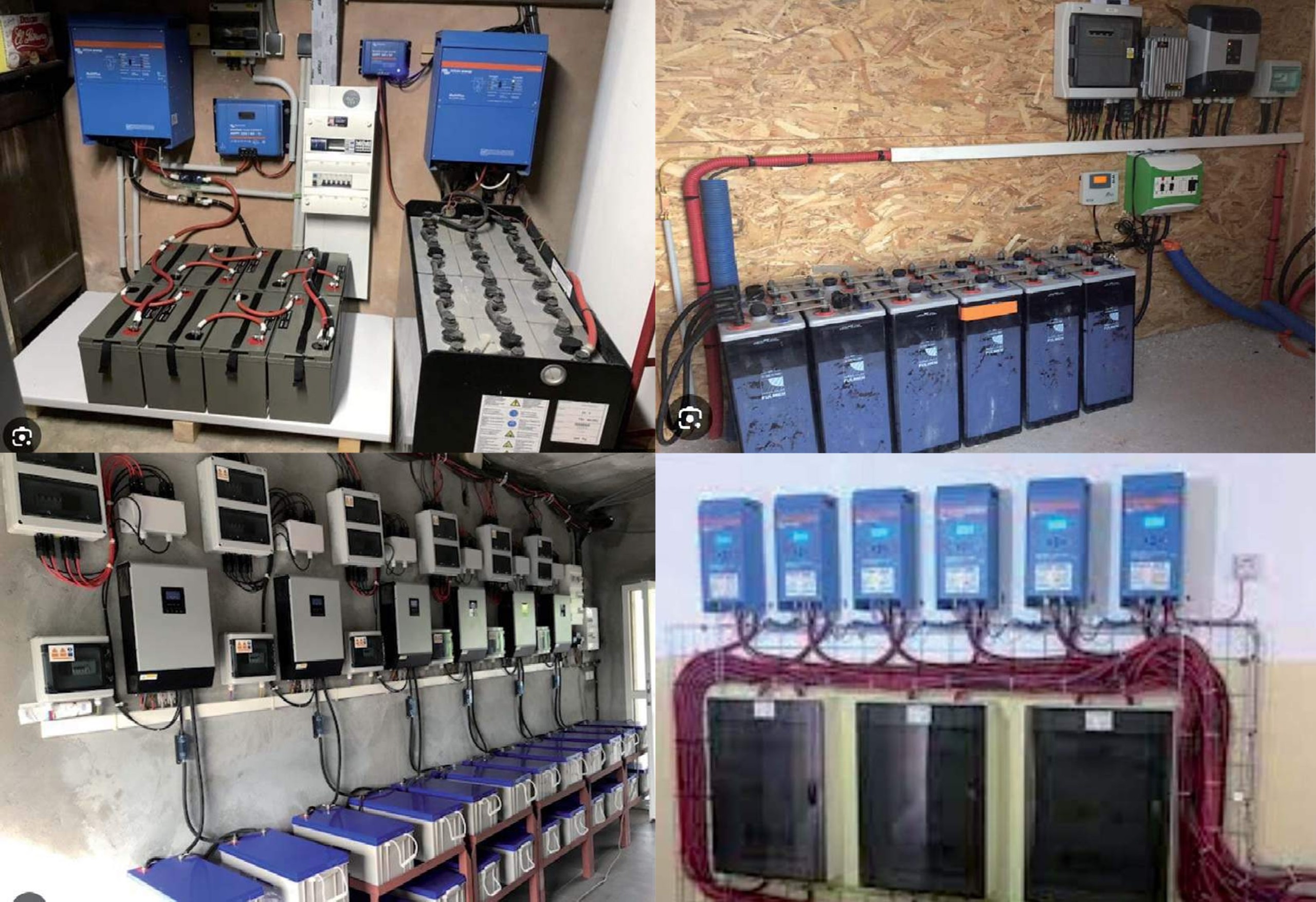
Existing systems are unreliable and often break down because the equipment used is rarely compatible.


